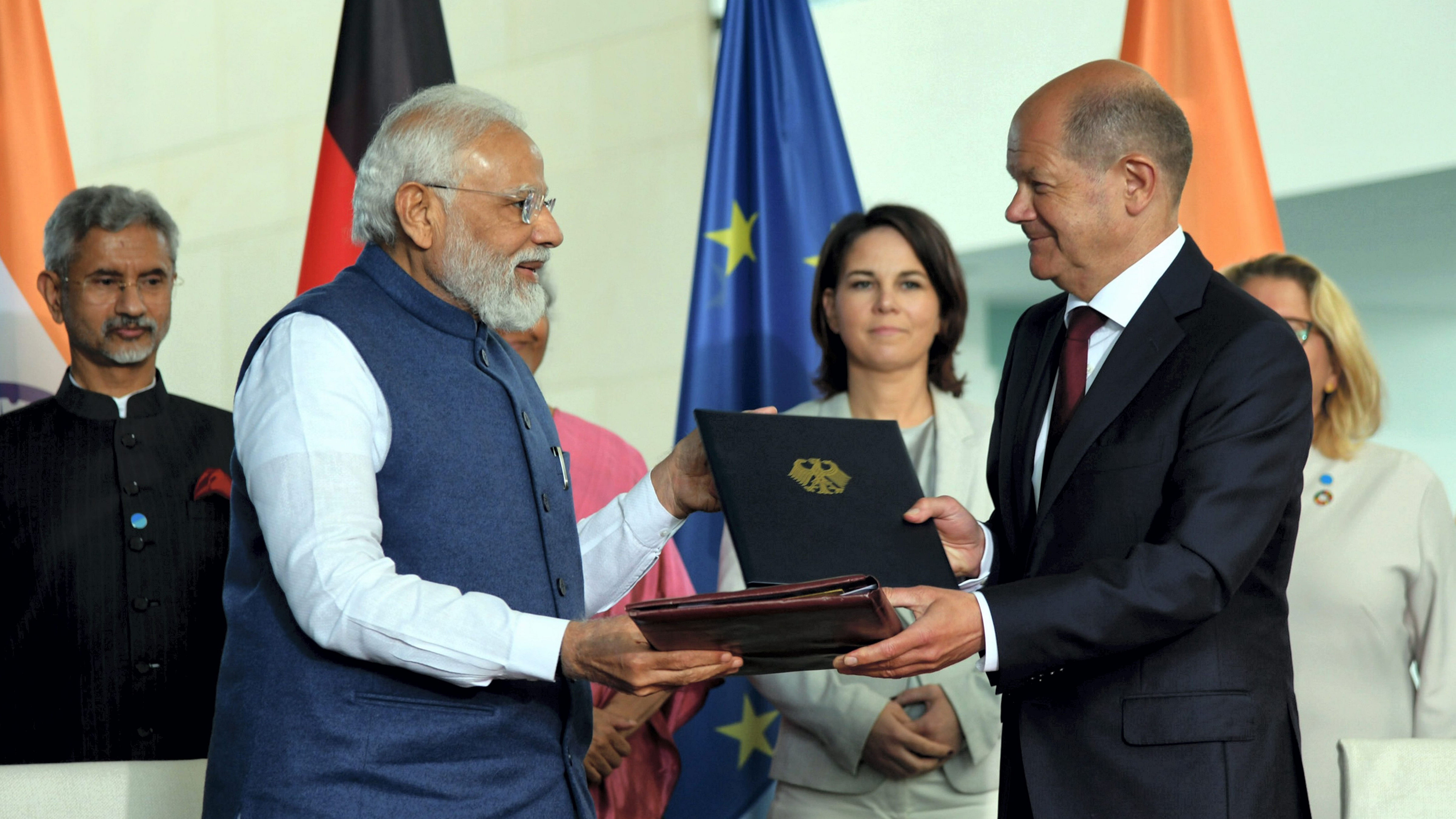
Germany on Monday pledged to provide €10 billion ($10.52 billion) over the next eight years to help India meet its target of raising its non-fossil energy generation capacity to 500 GW.
Prime Minister Narendra Modi and Chancellor Olaf Scholz signed a joint declaration of intent establishing the Indo-German partnership for green and sustainable development. The meeting between Modi and Scholz and the intergovernmental consultation chaired by the two leaders were followed by signing of six other documents, including the ones for implementation of triangular development cooperation projects by India and Japan in third countries, cooperation in the field of renewable energy partnership and forest landscape restoration.
The two nations also inked an agreement on a comprehensive migration and mobility partnership as well as another on setting up a green hydrogen task force.
The partnership for green and sustainable development will intensify bilateral cooperation between India and Germany as well as trilateral cooperation with the third countries and multilateral cooperation and link it with the strong commitment of both sides on the implementation of the 2015 Paris Climate Accords and Sustainable Development Goals. Considering that the time-line for the realisation of SDGs and some of the climate targets declared by India and Germany during COP26 in Glasgow culminate in 2030, they will work together to learn from each other and to facilitate the achievement of their respective objectives, according to a joint statement issued after the Prime Minister's meeting with German Chancellor.
Germany intends to strengthen its financial and technical cooperation and other assistance to India with a long-term goal of at least €10 billion of new and additional commitments till 2030 under the new partnership, it added.
The partnership will further promote German-Indian research and development, encourage private investment and thus aim at leveraging further funding.
The two sides agreed to develop an Indo-German Green Hydrogen Roadmap based on the inputs from the task force set up for the purpose, to establish an Indo-German Renewable Energy Partnership focusing on innovative solar energy and other renewables and addressing associated challenges for electricity grids, storage and market design to facilitate a just energy transition. The partnership would also support creation of a circular economy for solar technologies. Germany expressed its intention to provide India with financial and technical cooperation, including concessional loans of up to €1 billion from 2020 to 2025 depending on high quality project preparation and the availability of funds.
Also Read | Sanctions will not be lifted until Russia signs peace deal with Ukraine: Germany's Scholz
The Modi-Scholz meeting saw both sides agreeing on “Agroecology and Sustainable Management of Natural Resources” to benefit the rural population and small-scale farmers in India in terms of income, food security, climate resilience, improved soil, biodiversity, forest restoration and water availability and to promote Indian experience globally. Germany expressed its intention to provide India with financial and technical cooperation including concessional loans of up to 300 million Euros until 2025 depending on high quality project preparation and the availability of funds.
The two leaders agreed to further examine collaboration on Green Energy Corridors, like the Leh-Haryana transmission line and the project of a carbon neutral Ladakh.
External Affairs Minister S Jaishankar, Finance Minister Nirmala Sitharaman and Minister of State for Science and Technology, Jitendra Singh, as well as their counterparts in the German Government took part in the intergovernmental consultation in Berlin. Agriculture Minister Narendra Singh Tomar too took part in the consultation with German Minister of Economic Cooperation and Development Svenja Schulze virtually.
Check out the latest DH videos here:
